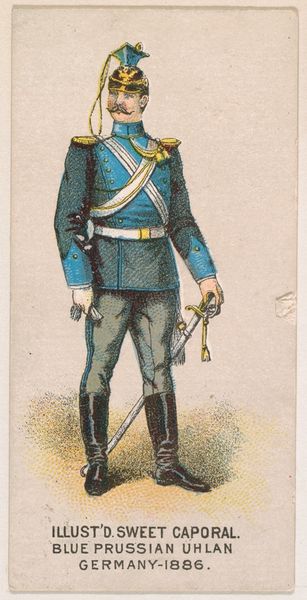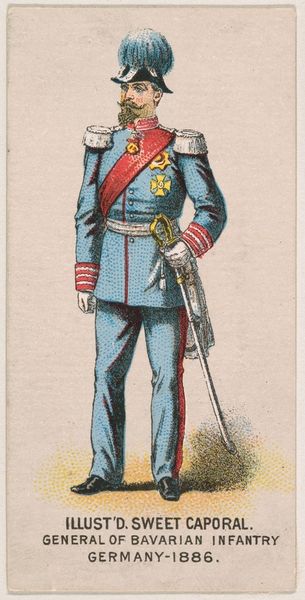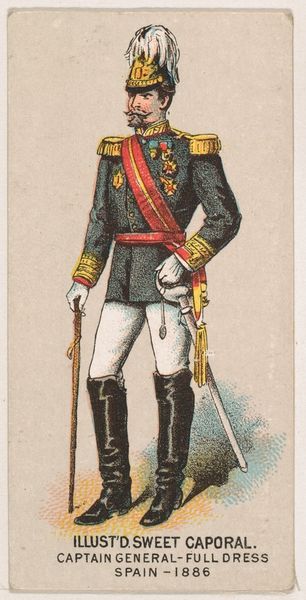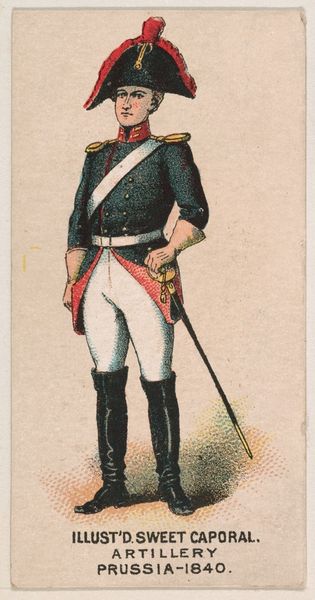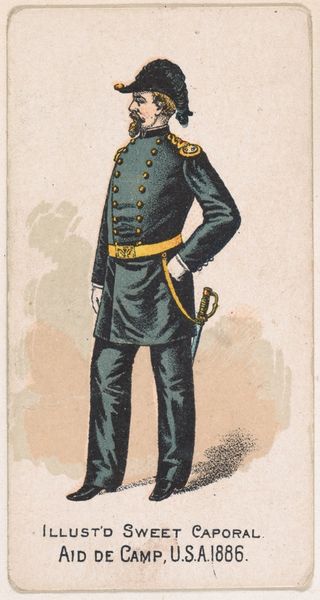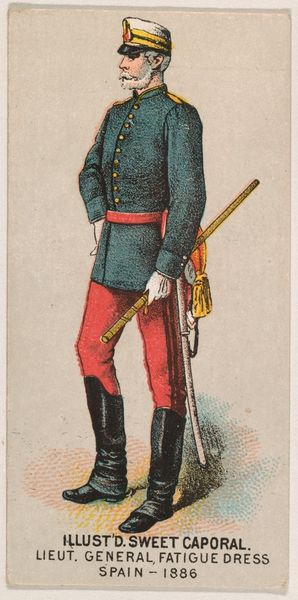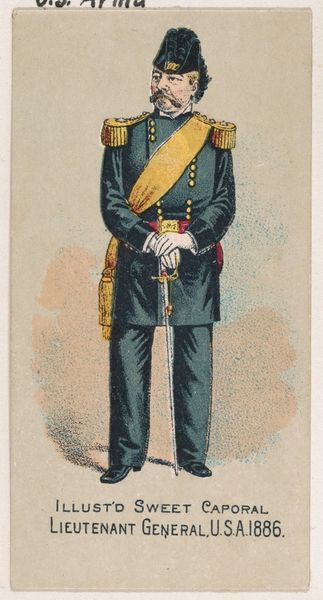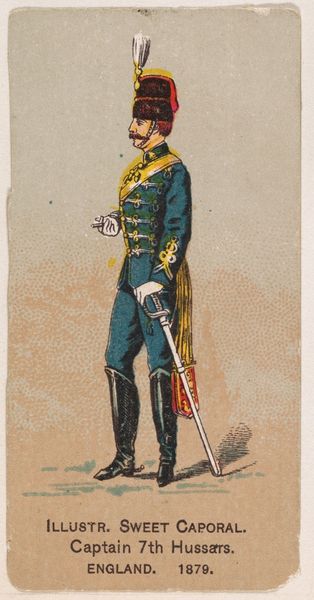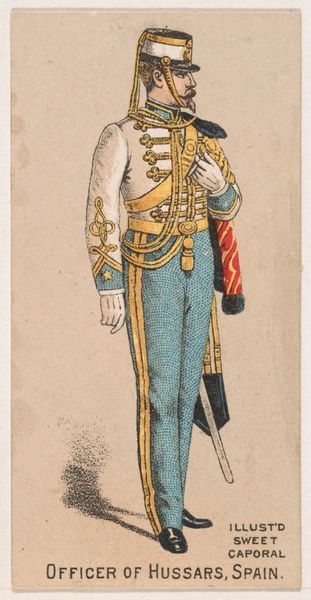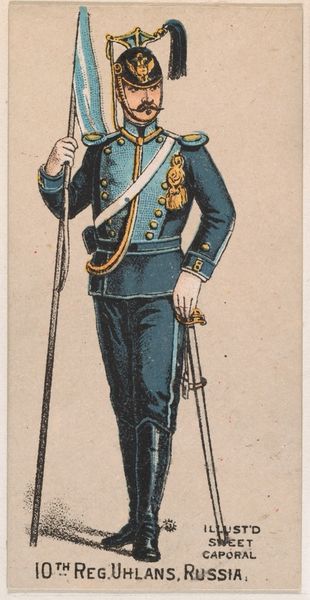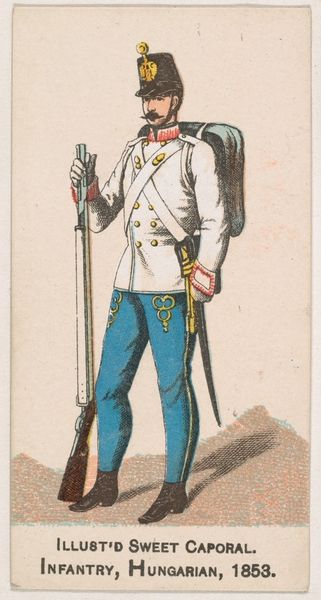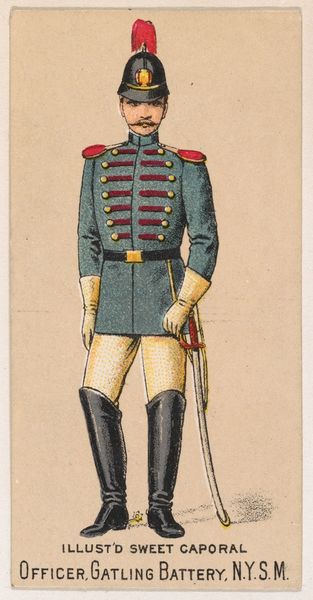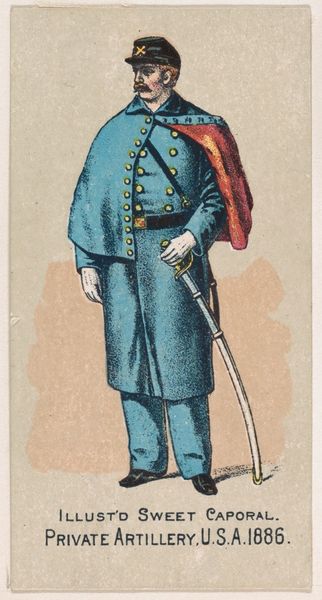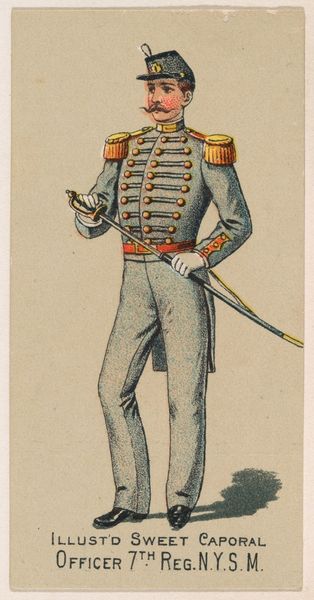
Hussar of the Line, Austro-Hungary, 1886, from the Military Series (N224) issued by Kinney Tobacco Company to promote Sweet Caporal Cigarettes 1888
0:00
0:00
drawing, print
#
portrait
#
drawing
# print
#
soldier
#
men
#
genre-painting
#
academic-art
Dimensions: Sheet: 2 3/4 × 1 1/2 in. (7 × 3.8 cm)
Copyright: Public Domain
Editor: So, here we have "Hussar of the Line, Austro-Hungary, 1886" from the Military Series, dated 1888. It's a drawing and print from the Kinney Tobacco Company, advertising Sweet Caporal cigarettes. The colors are what grab me—this very specific pale blue and the highly rendered detail. How would you interpret this work? Curator: It's crucial to recognize the social and economic forces at play here. We aren't simply looking at a portrait of a soldier. This image is a commodity, produced via industrial printing for mass consumption. How does the Kinney Tobacco Company employ imagery of power and militarism to sell a consumable product? The print’s value isn’t just artistic; it lies in its function within a consumer economy. Editor: So, the material – the print itself – becomes as significant as the image it depicts? The association between the image and the cigarettes affects how we perceive it? Curator: Precisely. Consider the labour involved. The artist who made the drawing, the factory workers who printed thousands of these cards. And what about the consumer who purchases this cigarette pack with the intention of consuming tobacco and perhaps keeping the illustration? All these elements speak to the processes, labour, and circulation that form the art’s total reality. Editor: It’s strange to think of this collectible card as the product of so many levels of work – I'd only really considered its face value until now. I suppose understanding art like this helps to strip away the romanticism of the artist. Curator: Exactly. And it forces us to question the conventional hierarchy of artistic value. Is this 'lesser' than a painting? Because it served as advertisement? Perhaps it reveals just as much, or even more, about a society’s values. Editor: This makes me consider how all types of creation and artistic material from high art to everyday promotional material have a lot to say about that period and people. Thank you, it gave me new perspective!
Comments
No comments
Be the first to comment and join the conversation on the ultimate creative platform.
